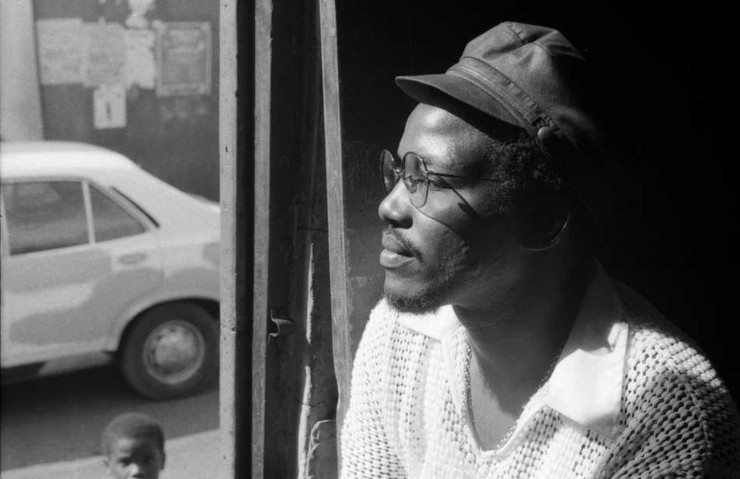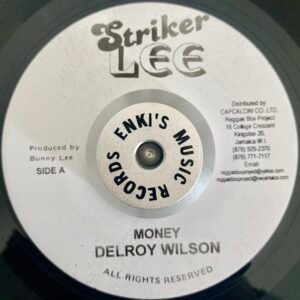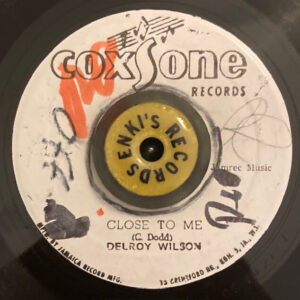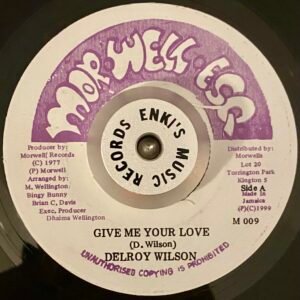When you talk about the golden age of Jamaican music, one name that always stands out is Delroy Wilson.
A pioneer in the development of ska, rocksteady, and reggae, Delroy was much more than just a singer – he was a voice that defined an era and one of Jamaica’s most soulful vocalists.
At only 13, Wilson became Jamaica’s first child star. He became the first reggae artist to record a remarkable 350 songs.
Let’s take a closer look at his remarkable journey.
Early days: a star is born
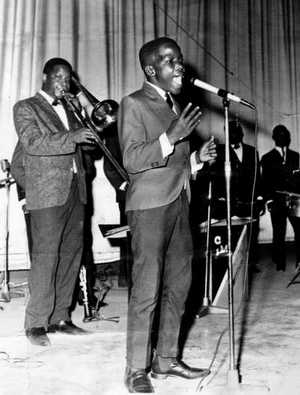
Delroy Wilson was born in 1948 in the Kingston neighborhood of Trenchtown, Jamaica. Like many Jamaican musical legends, he started his career at a young age and discovered his talent early on.
His journey into music began when he was just 13, recording his first songs with famed producer Clement “Coxsone” Dodd at Studio One, a hub of Jamaican music. It was the early 1960s, and ska was the sound taking over the island.
Delroy’s breakthrough came with his hit single, “Joe Liges”. Composed by Dodd, it was a direct confrontation aimed at rival producer and sound system operator Prince Buster. This song gained him massive attention and showcased Delroy’s ability to connect with audiences, even at a young age.
Delroy’s debut album was “I Shall Not Remove”, released in 1966.
Rocksteady and early reggae: Delroy Wilson finds his groove
As the Jamaican music scene evolved, so did Delroy’s style. When ska transitioned into the smoother, slower-paced rocksteady in the mid-1960s, Delroy adapted with ease.
Delroy Wilson’s voice, often described as soulful and rich, became even more prominent as rocksteady emphasized melody and vocals over the fast, upbeat rhythms of ska.
He released a string of hits during this period, including “Dancing Mood” and “Rain From the Skies.” These songs not only solidified his reputation in Jamaica but also helped define rocksteady’s sound.
His music during this time reflected the changing mood of the island, as it was a time when Jamaica’s social and political landscape was transforming. His voice carried both the joy and the struggles of the people.
Becoming a reggae legend
As rocksteady began to fade, reggae took center stage in the late 1960s and early 1970s.
Once again, Delroy Wilson was ready for the transition. By this time, he was already a seasoned artist, and his voice was ideally suited for reggae music‘s deeper, more introspective nature.

In 1967, Wilson split from Dodd and, in the following years, collaborated with various producers like Bunny Lee, Sonia Pottinger, Keith Hudson and Leslie Kong.
Delroy Wilson launched the W&C label with fellow singer Wilburn Cole and The Links label with Ken Boothe, the Gaylads and the Melodians. They released a small number of singles and then folded.
In 1970, he toured the UK, recording some songs for the Trojan label.
Once back in Jamaica, Wilson continued the studio rounds, working with various producers, including his old mentor Coxsone Dodd and once again with Bunny Lee.
In 1971, Wilson and Lee unleashed “Better Must Come”, a song that became an anthem of hope during Jamaica’s politically charged 1970s.
Prime Minister Michael Manley’s campaign even adopted it during his election bid. This cemented Delroy Wilson’s status as a musician and a cultural icon.
The singer followed up his hit with the equally unforgettable “Cool Operator.” And in 1976, Delroy Wilson delivered another hit with a beautiful rendition of Bob Marley‘s “I’m Still Waiting,” produced by Lloyd Charmers.
Later Years
Wilson’s career faced a slowdown with the rise of DJs in the early ’80s. However, he made a strong comeback with 1987’s “Don’t Put the Blame on Me,” produced by King Jammy, followed by the equally successful Lee-produced “Ease Up” in 1988.
Financial difficulties and health problems marked his later years. Despite these hardships, he continued to perform and record throughout his life, remaining a beloved figure in the reggae community.
Tragically, Delroy Wilson died from liver cirrhosis on March 6, 1995, at 46 years of age.
Often called ‘The Dean of Reggae’, he was posthumously awarded Jamaica’s Order of Distinction in the Commander class in October 2013.
Sources:
Biography by Jo-Ann Greene on allmusic.com
The Delroy Wilson Official Tribute Tour

